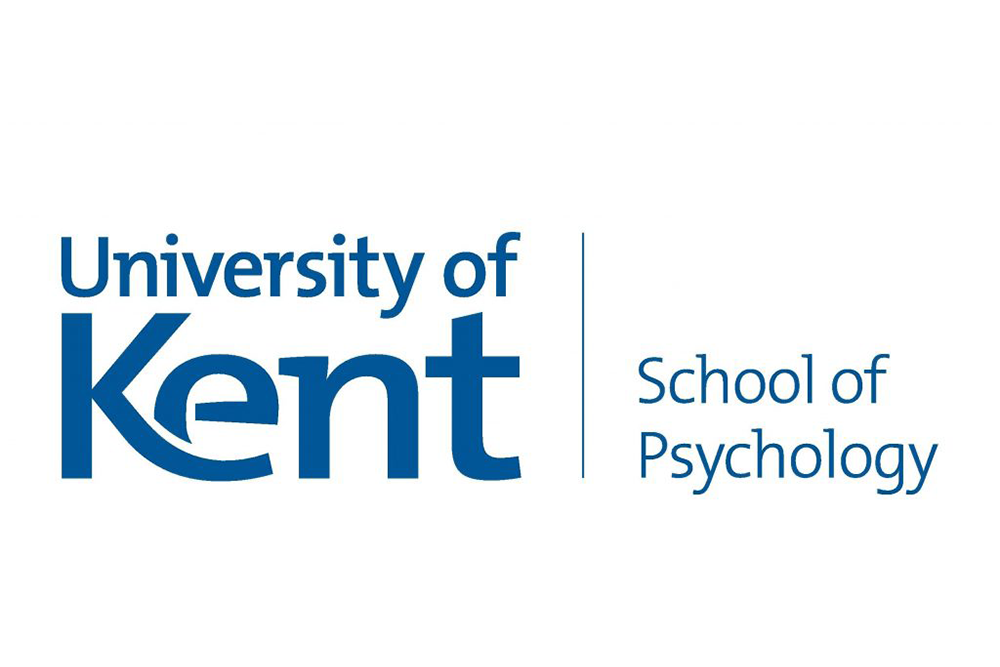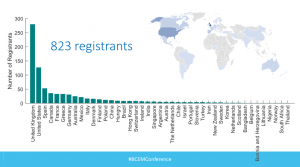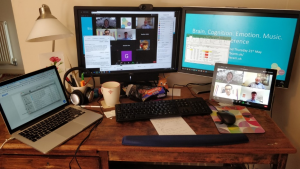In lieu of our normal Kent Psychologist Newsletter, we’ve put together a blog round-up of news, research and media features for you to read. Additionally, there is a piece written by one of our current undergraduate students.
The School of Psychology is now 18th in the new Complete University Guide 2021 for Psychology!
Congratulations
Firstly, congratulations are in order for some of our amazing staff and students, who are continuing to achieve great things even in lockdown:
- Congratulations to student Teniola on winning the February Employability Points competition, securing a fantastic 445 points for undertaking voluntary and co-curricular activities.
- Congratulations to Dr Julie Van de Vyver on being awarded the BPS Social Psychology Section’s Early Career Award for research carried out whilst studying her PhD at Kent. Julie is now an Assistant Professor at Durham University.
- Congratulations to Dr Kirsten Abbot-Smith and Dr Mike Forrester on being awarded £328,544 to conduct research examining cognitive constraints on children’s ability to manage a conversation topic, with Professor Sue Leekam (Cardiff University) and Dr Danielle Matthews (University of Sheffield). They also received another award of £9,994 with Danielle Matthews to carry out research on conversational topic management in typically-developing seven and eight year-old children.
- Congratulations to Dr Caoilte Ó Ciardha on being made an Associate Editor for the journal Sexual Abuse.
- Congratulations to Professor Dominic Abrams and Dr Fanny Lalot on being awarded a grant of £234,000, in collaboration with Belong (the Cohesion and Integration network), by the Nuffield Foundation. This will fund research into community responses to the COVID-19 pandemic.
- Congratulations to MSc student Melody Brooks, joint winner of the David Humphreys Prize. Melody’s prize is given in recognition of her involvement as leader of the University Symphony Orchestra, a member of the String Sinfonia, and numerous chamber music ensembles with whom she has performed this year. Details of the virtual awards ceremony can be found on the Music Department’s blog: bit.ly/2C0uAWS.
- Congratulations to Dr David Kelly, Dr Kirsten Abbot-Smith, Dr Lindsey Cameron and Dr Markus Bindemann on their respective promotions to Senior Lecturer, Reader, Reader and Professor with effect from 1 October 2020.
- Congratulations to PhD student Linus Peitz for winning Kent’s three-minute thesis (3MT) competition this year, with his research on the political psychology of polarising political events such as Brexit.
The Brain, Cognition, Emotion and Music conference:
Contributed by Amelia Turrell (PhD student)
The recent international online conference entitled Brain, Cognition, Emotion, and Music (BCEM), held on 20th and 21st May, explored the effects of music on people and the human connection with music. It brought together research and expertise from a number of fields including Psychology, Musicology, and Ethology. Despite original plans being interrupted by Covid-19, organisers Dr Amir-Homayoun Javadi, Amelia Turrell (from the University of Kent) and Andrea Halpern (from Bucknell University, USA) were undeterred and moved the conference online with great success, seeing over 800 attendees.
Five keynote speakers at the top of their fields (from the UK, US and Norway), gave interesting and innovative talks around the four topics of BCEM and the links between them, attempting to bring together knowledge and insight into the powerful and emotive influences of music. Talk titles included ‘How does expectation influence aesthetic experience of music?’, ‘Emotion: Insights from Ethology’, and ‘Brain-correlates of Music-evoked Emotions’. A further five supporting talks were presented by students and/or early career academics on a vast array of interesting topics including music and speech perception, harmony perception in different cultures and the emotive effects of music video watching. Over 40 posters were also included online from students, early academics, and fellow doctors and professors on a wide range of topics categorised under clinical, emotional, musicality and training, as well as perception, cognition and motor groupings.
Despite the challenges of moving the conference online at the last minute, BCEM ran smoothly using digital technologies that allowed attendees to watch and interact with speakers live. Although being online may have reduced the opportunities for networking and the social elements of a conference, it did allow people to attend from all over the world; there were attendees from the UK, France, Germany, and Spain all the way to Canada, the US, China, Australia and New Zealand. Overall, BCEM received overwhelming positive feedback, with attendees and speakers noting the conference as a refreshing and stimulating distraction in the current uncertain and stressful times. For further information please visit http://bcem.uk/.
Student perspective: What’s it like being a Research Assistant?
Contributed by Theo Chan, Stage 2 Representative
I first became part of a research team in my first year, assisting in the development of statistical resources. Research opportunities were rare for first year students, so when a lecturer announced he was looking for students to help, I jumped at the chance to take part. The research was not experimentally based, but I was able to learn a lot, such as understanding the importance of qualitative data and teamwork in research projects.
Leading from this, the supervisor contacted us asking if anyone was interested in assisting in lab research, leading to my research assistant position in second year. We conducted experiments measuring people’s social judgements whilst using virtual reality technology. Being part of this project was really interesting, and provided me with insight into how different equipment, such as virtual reality, could be used to investigate psychological processes. I also found myself applying what I had learnt in lectures about conducting experiments, for example how to use deception ethically and ensure that correct debriefing occurs after the experiment is complete. The most exciting thing about being a research assistant was actually seeing how different experimental conditions can affect a participant’s behaviour, and thus see how behaviour changes under different conditions.
I highly recommend everyone to apply for a research assistant role, whether it be through the Research Experience Scheme or by asking lecturers for upcoming projects. Even if you do not plan on going into research in the future, it provides insight into how psychological research has and continues to develop. Knowledge gained from conducting research, such as the importance of ethics, is useful in any psychological setting.
Research in the media:
On 3 March, research from the CogSoCoAGE project (Principal Investigator Professor Heather Ferguson) featured on Horizon, the EU Research and Innovation Magazine, discussing some findings from the project so far.
On 4-16 March, Dr Arnaud Wisman’s research on scent and attraction featured in The Daily Mail, the Metro and Kent Online.
On 4 March, Professor David Wilkinson’s research on the therapeutic benefits of vestibular stimulation featured in the Kent magazine.
On March 16, The Conversation released a podcast series on conspiracy theories, where Professor Karen Douglas, Dr Aleksandra Cichocka and colleagues discuss the academic research on the history of conspiracy theories, who believes them, how they spread and more.
On March 18, the Centre of Research and Education in Forensic Psychology (CORE-FP) published their Polygraph Evaluation Report, commissioned by the National Police Chief’s Council. The report evaluates police use of polygraph testing with individuals convicted or suspected of committing a sexual offence, and featured in The Guardian and The Daily Mail. The research later featured in the BPS’ Psychologist magazine.
‘Our findings support the police use of polygraph testing, particularly mandatory polygraph testing, as a supportive tool for managing individuals convicted of sexual offences who live in the community.’
On March 19, the Centre for Ageing Better released a report on attitudes to older people and ageing, where Dr Hannah Swift and Ben Steeden reviewed evidence that negative stereotypes are widespread in the workplace, in health and social care and in the media. This report was discussed in the Guardian.
On March 19, research examining narcissism and confidence, led by Dr Aleksandra Cichocka, was discussed by Thrive Global.
On 23 March, Dr Aleksandra Cichocka wrote for The Conversation on gender conspiracy theories are spreading across the world.
‘Overall, the results of our project suggest that portraying gender studies and gender activists as a part of a conspiracy theory can have serious consequences – leading to hostility towards those who do not conform to traditional gender roles. This hostility even extends to those who simply take scientific interest in issues of gender.’
On 25 March, Professor Karen Douglas gave expert comment to Harper’s Bazaar on conspiracy theories – why people believe them and why they heighten anxiety.
On 8 April, Professor Karen Douglas spoke to the New York Times on conspiracy theories related specifically to the COVID-19 pandemic.
On 25 April, Dr Lindsey Cameron gave expert advice on how to keep children social at home during the UK COVID-19 lockdown.
On 22 April, Dr Kristof Dhont gave an interview to companionanimalpsychology.com about his new book Why We Love and Exploit Animals.
‘ As far as we are aware, our book is also the first of its kind in covering a wide range of topics from the social and behavioral sciences on human-animal relations with a particular focus on the conflicting, and mostly exploitative, behaviors towards animals.’
On 22 April, Dr Lazaros Gonidis gave comment on the risks for those with existing and previous gambling problems during the COVID-19 pandemic. Lazaros also spoke to BBC Radio Kent on 29 April to discuss the temporary cessation of gambling advertising during the pandemic lockdown in the UK.
On 24 April, Dr Jim Everett discussed utilitarianism in an article about the US ‘Open it Up’ movement for CNN.
On 26 April, The Guardian discussed how the COVID-19 pandemic is deepening prejudice against older people, referring to Dr Hannah Swift and Ben Steeden’s report on age related stereotypes in the UK.
On 29 April, Professor Dominic Abrams gave wrote for The Guardian on the need for the UK government to consider the importance of social and economic research findings in the wake of COVID-19, as well as just ‘the science’.
‘We need psychologists to establish the potentially damaging impact of virtual learning on young children, ethical philosophers to scrutinise the value given to care work in society, legal scholars to interpret the powers devolved administrations have when implementing emergency measures, and urban geographers to turn the “test, track and trace” strategy into a reliable method to ease lockdown.’
On 6 May, Professor Karen Douglas’ research on conspiracy theories was featured in The Week.
‘“If you feel that you have knowledge that other people don’t have, then you can feel a sense of superiority over those people….It can boost your self-esteem to have this feeling that you’re unique compared to other people.” This is why conspiracy theories tend to be organized by the principle of insiders versus outsiders: Conspiracism makes for a convenient way to blame other people for the ills of the world, and offers the added bonus of making the conspiracist feel smart.’
On 7 May, Lazaros Gonidis provided advice to the Daily Mail for gamblers and those at risk of gambling problems during the coronavirus lockdown.
On 11 May, Dr Jennifer Storey wrote for The Conversation on how coronavirus lockdown measures may be putting older adults at greater risk of abuse.
‘Sadly, many measures taken to protect older adults from coronavirus may inadvertently create conditions that increase instances of elder abuse. It is important to rethink how services are provided in order to stop this from happening.’
On 13 May, Professor Karen Douglas gave expert comment to the Atlantic on why people are drawn to believe in conspiracy theories. She also gave comment to TRT World and VICE on 18 and 19 May respectively to discuss conspiracy theories in relation to the coronavirus.
On 22 May, Dr Nikhil Sengupta gave expert comment to VICE on why the public are engaging in the NHS Clap, and how the movement can be harnessed for positive change.
‘There is certainly research showing that symbolic gestures can become a way of avoiding difficult real-world change, but this is not inevitable. I think the popularity of the NHS clap presents an opportunity to highlight how people’s values can be translated into policy changes that would protect and empower frontline workers. This is why key workers have started to talk about what they would like to see happen after the applause,’
On 25 May, Professor Karen Douglas was featured on BBC’s Future article on what we can learn from conspiracy theories. On 26 May, she joined Australia’s Late Night Live to discuss how the pandemic may be feeding into the psychological drivers behind conspiracy theories.
“I think it is really, really important to understand where conspiracy theories come from and how they spread, because there’s strong evidence that believing them has significant consequences.”
On May 28, Dr Eduardo Vasquez was featured in Elemental‘s article on displaced aggression.
On 3 June, Professor Karen Douglas’ research is featured in an Economist article on fake news. On 6 June, she also talked to Tes on how conspiracy theories are often used as anxiety coping mechanisms. You can also listen to an interview given to ABC Australia on conspiracy theories. From 11 June.
Professor Dominic Abrams features on BBC Radio 4’s Moral Maze on 17 June to discuss racial justice. You can listen to the discussion on BBC Sounds.
Make sure that you keep up to date with The School of Psychology on Twitter, Facebook, and Instagram.



